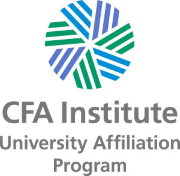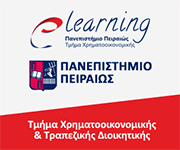Macroeconomics II
Macroeconomics II
ΧΡΜΑΚ02
Teacher: N. Apergis
ECTS: 7.5
Course Type: Elective
Semester: 5th or 7th
Teaching Hours: 4
Prerequisities:
Course Scope
Upon the completion of the successful of the course, the students are able to:
- Understand general macroeconomic relations in an open economy environment, i.e. macroeconomic policy in open economies.
- Understand how an open economy operates and assess the role of economic policy under various exogenous factors.
- Understand and analyze the factors that determine the growth process.
- Understand and analyze the factors driving consumption and investment decisions,
- Understand and assess the role of public debt, along with its sustainability.
- Use various functional forms and graphs, along with empirical results and to recommend various solutions to cope with certain macroeconomic problems.
- Solve various quantitative exercises through which they can determine certain macroeconomic measures under different economic scenarios of economic policy.
Course Outline
Open economy: National income constraints, balance of payments, trade balance, determinants of net exports, interest rates, exchange rates, determinants of international capital flows, equilibrium conditions in open economies, economic policy and exogenous factors, exchange rate regimes, international capital mobility.
Growth theories: the accounting of growth, Solow residuals, savings and productivity in the Solow model, dynamic adjustments and equilibrium in steady state, the golden rule of capital accumulation, general Solow model, the role of technology, human capital, government sector, poverty traps, market internalization, absolute and relative convergence of per capita income, endogenous growth.
Consumption and investment theories: Intertemporal choices, the life-cycle model of consumption, the permanent income model, short- and long-term average propensity to consume, investment, expectations and uncertainty, present value model, the accelerator model, the neoclassical model of investment, the Tobin-Q model.
Public deficits and public debt: Government income constraint, financing government expenses, determinants of public deficits, the dynamics of public deficits and debt, debt sustainability, debt monetization, the market of government bonds/securities, risk premia, credit rating agencies.
Theories of expectations: Adaptive and rational expectations, economic policy under rational expectations.
Suggested Reading
Macroeconomics, Gartner Manfred,
Macroeconomic Theory: A Micro Approach, Barro J. Robert,
Macroeconomics, Frederic S. Mishkin




